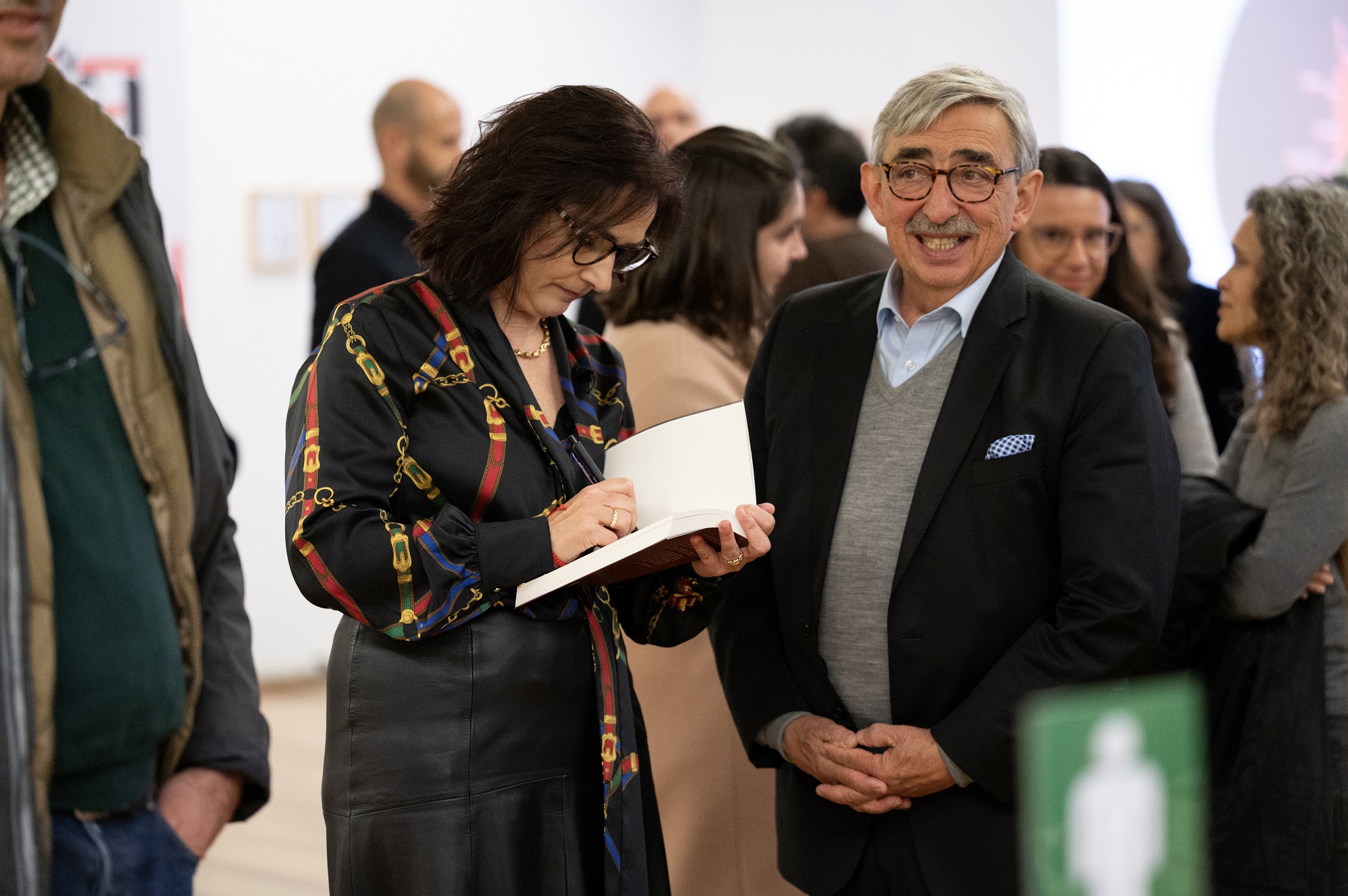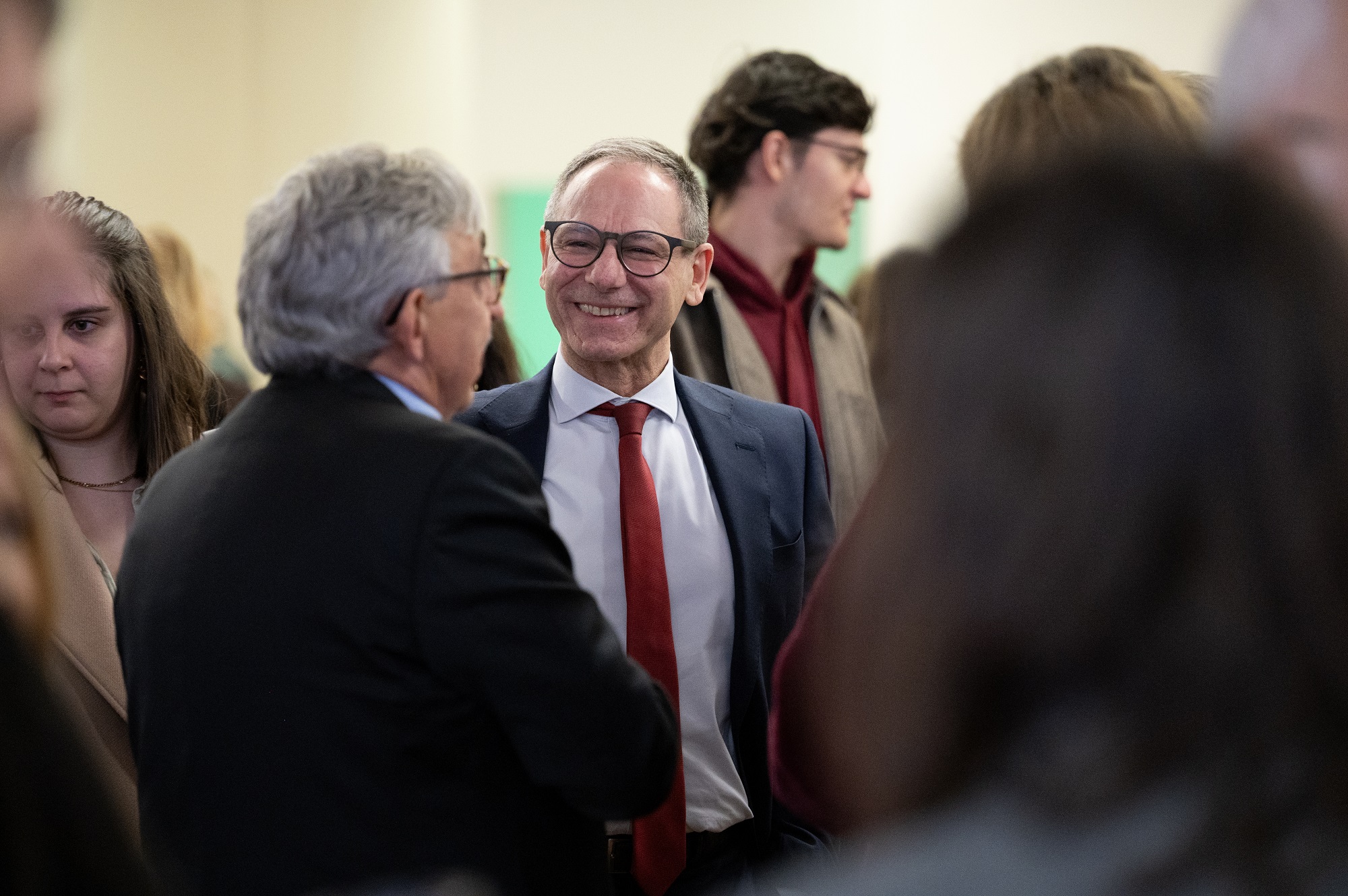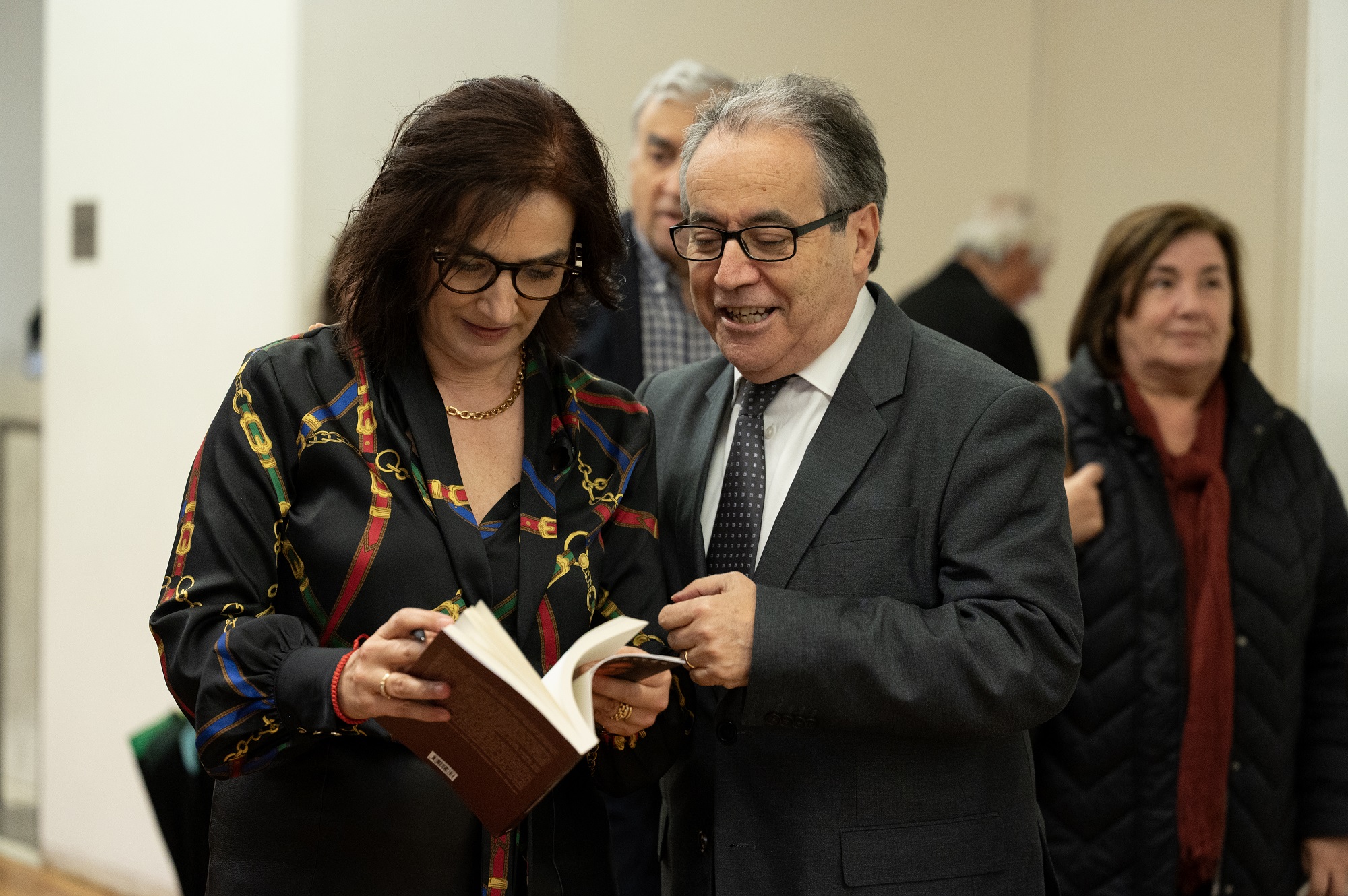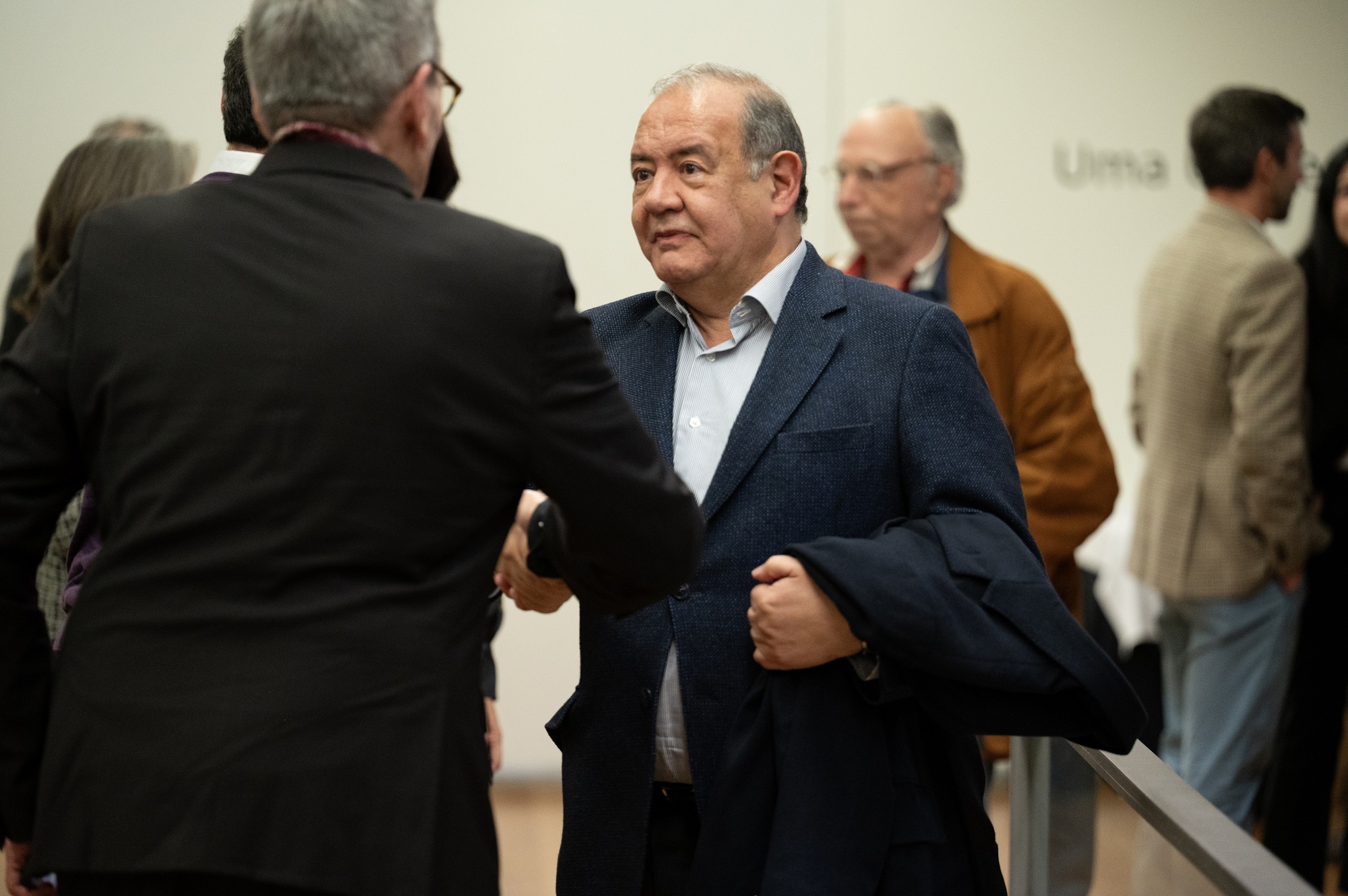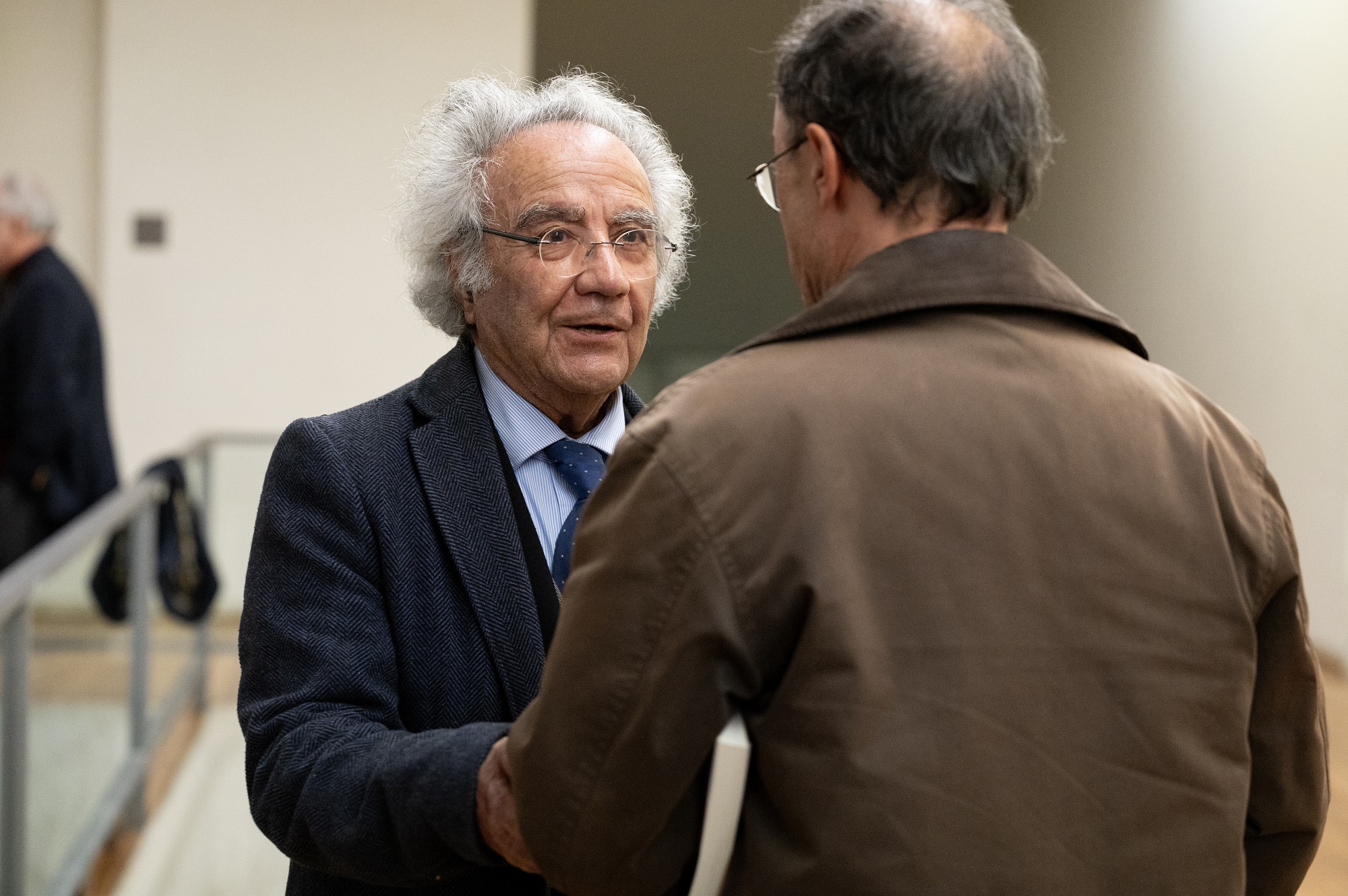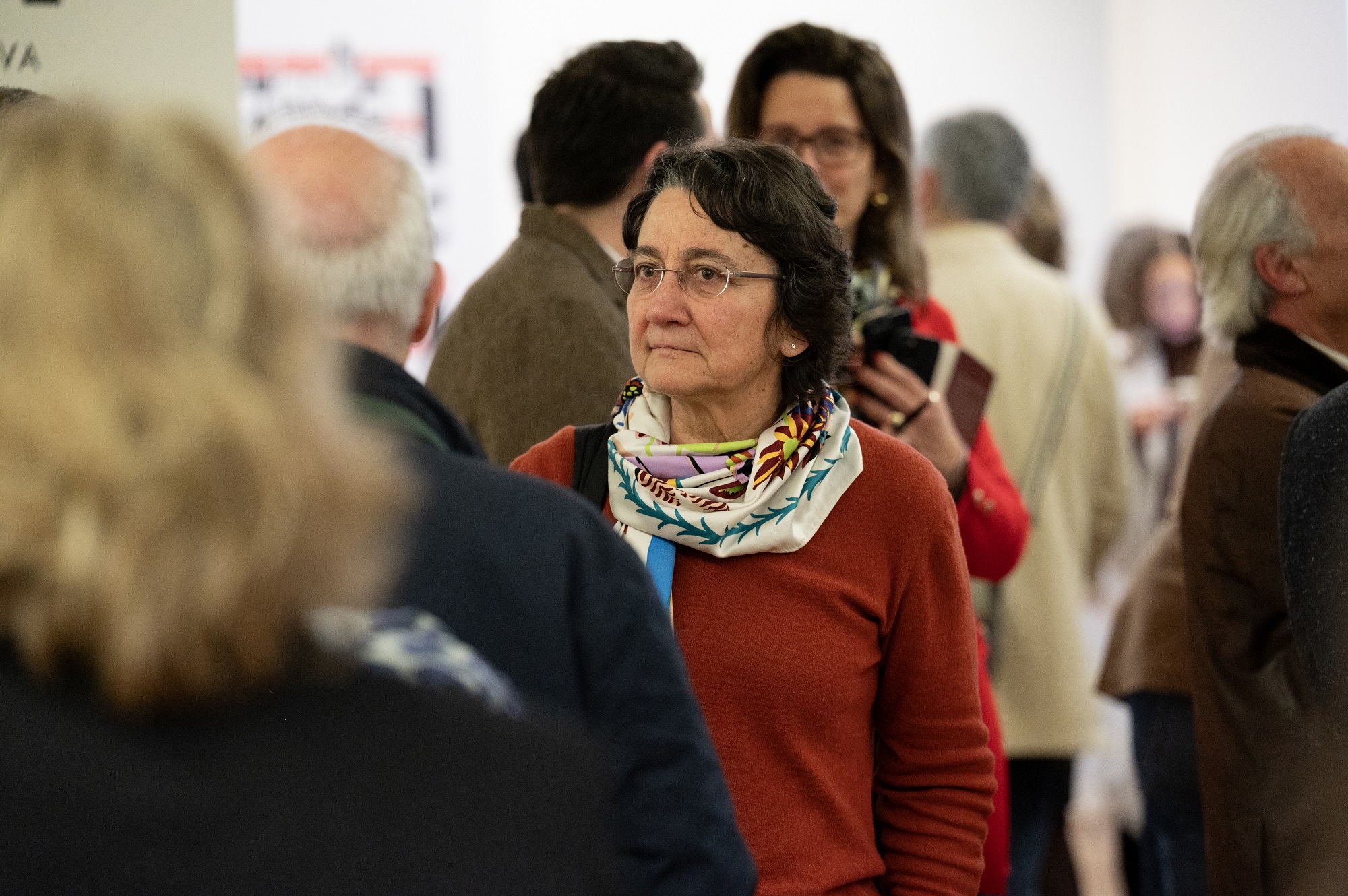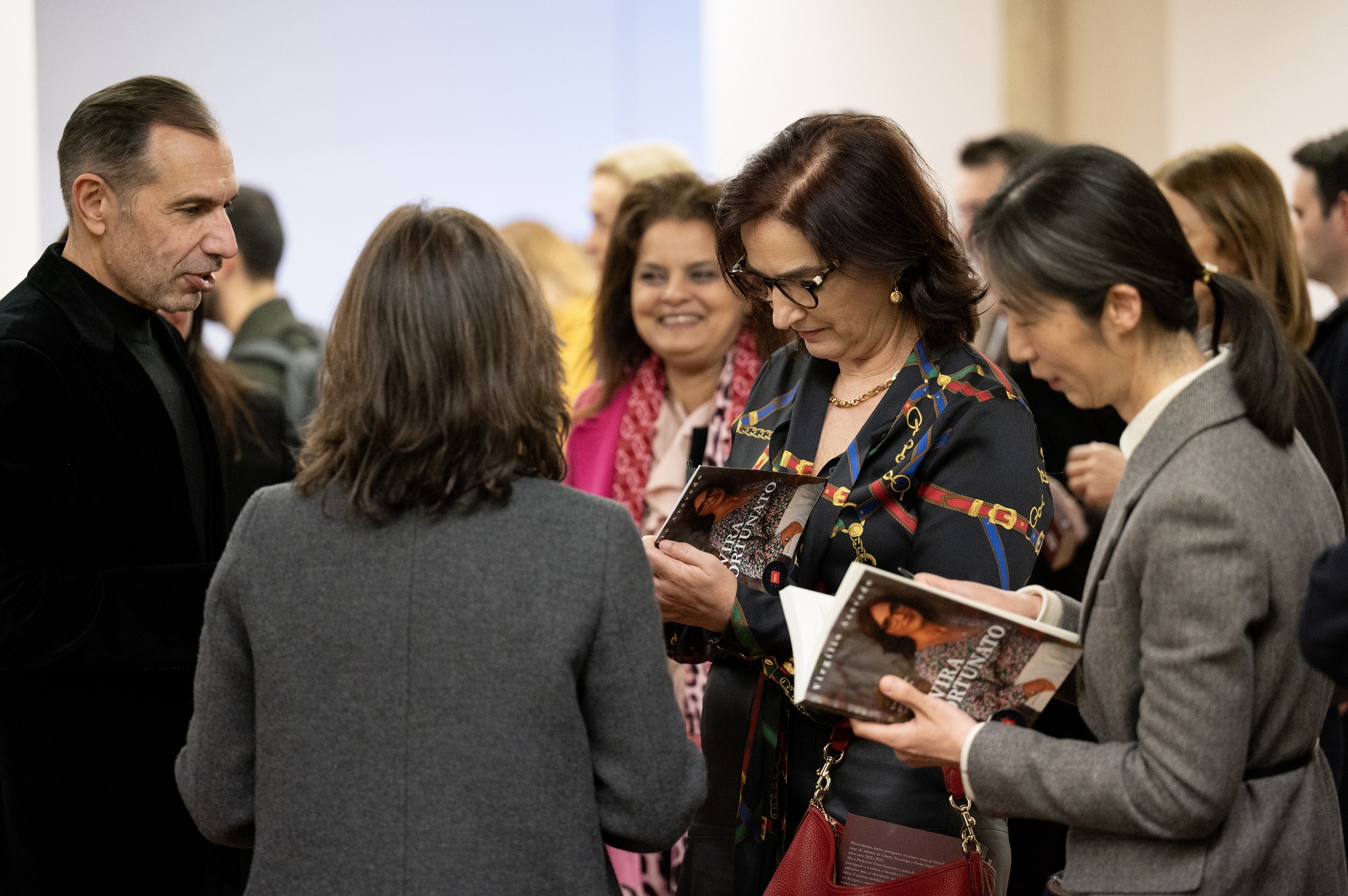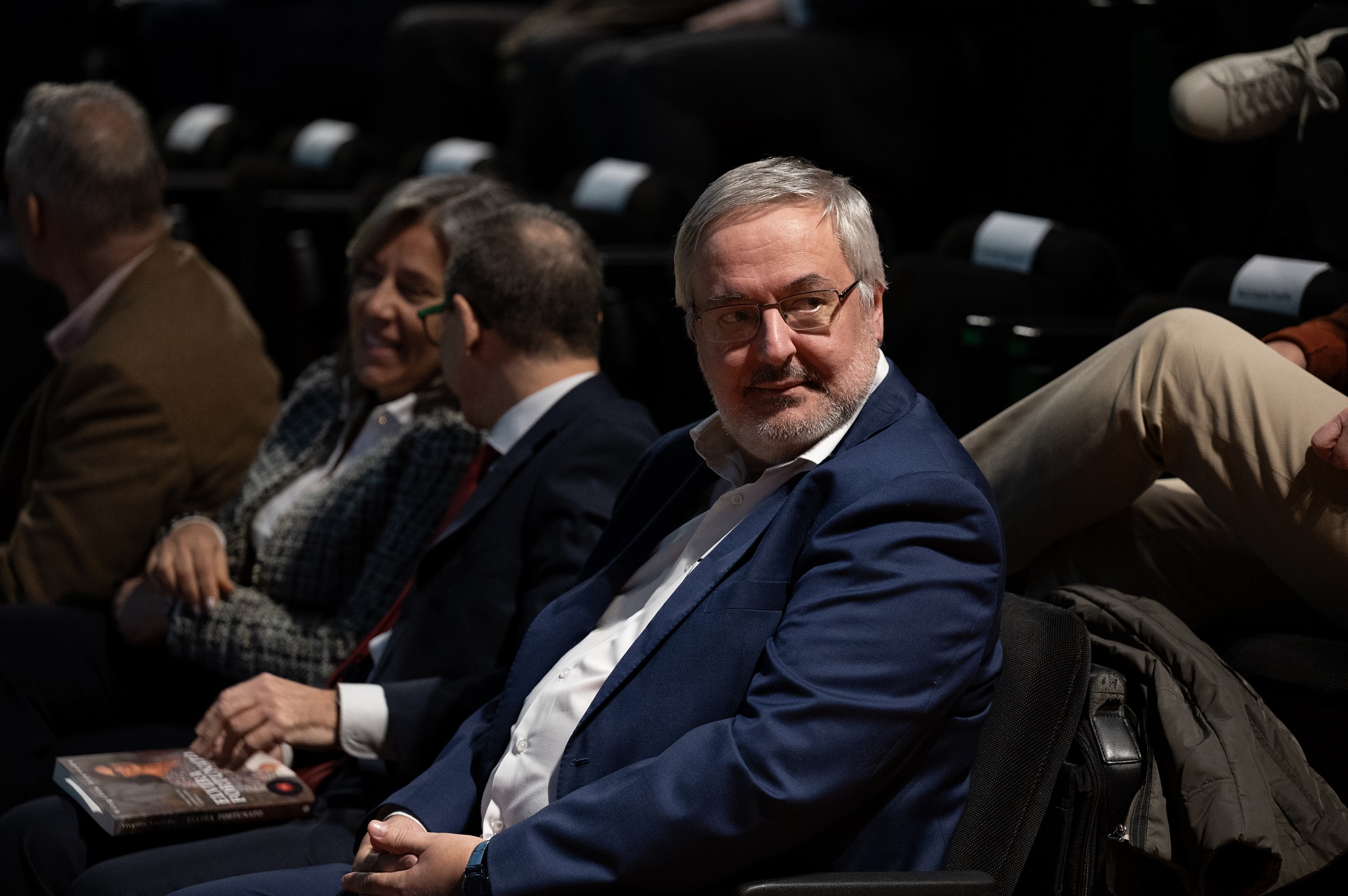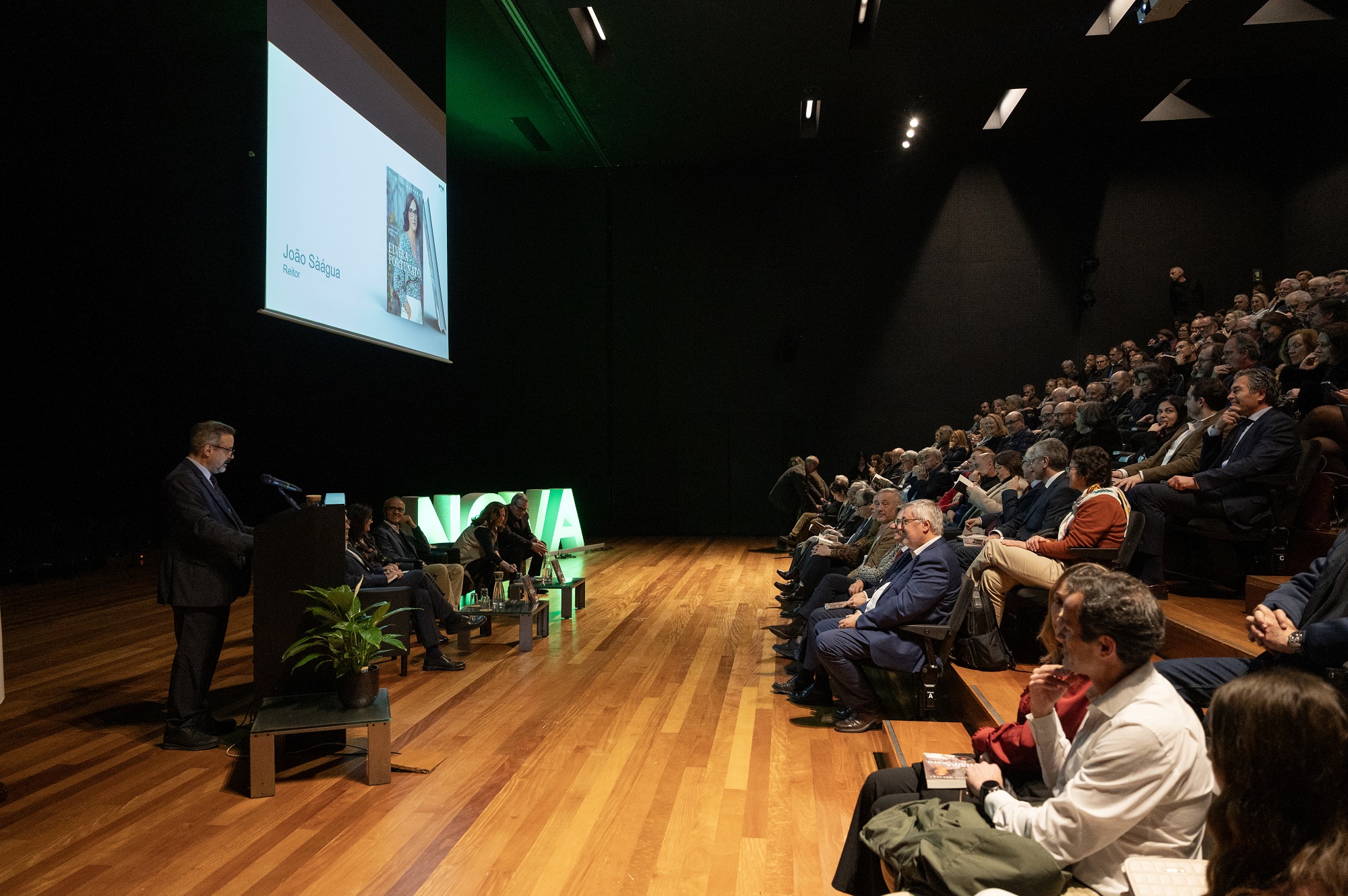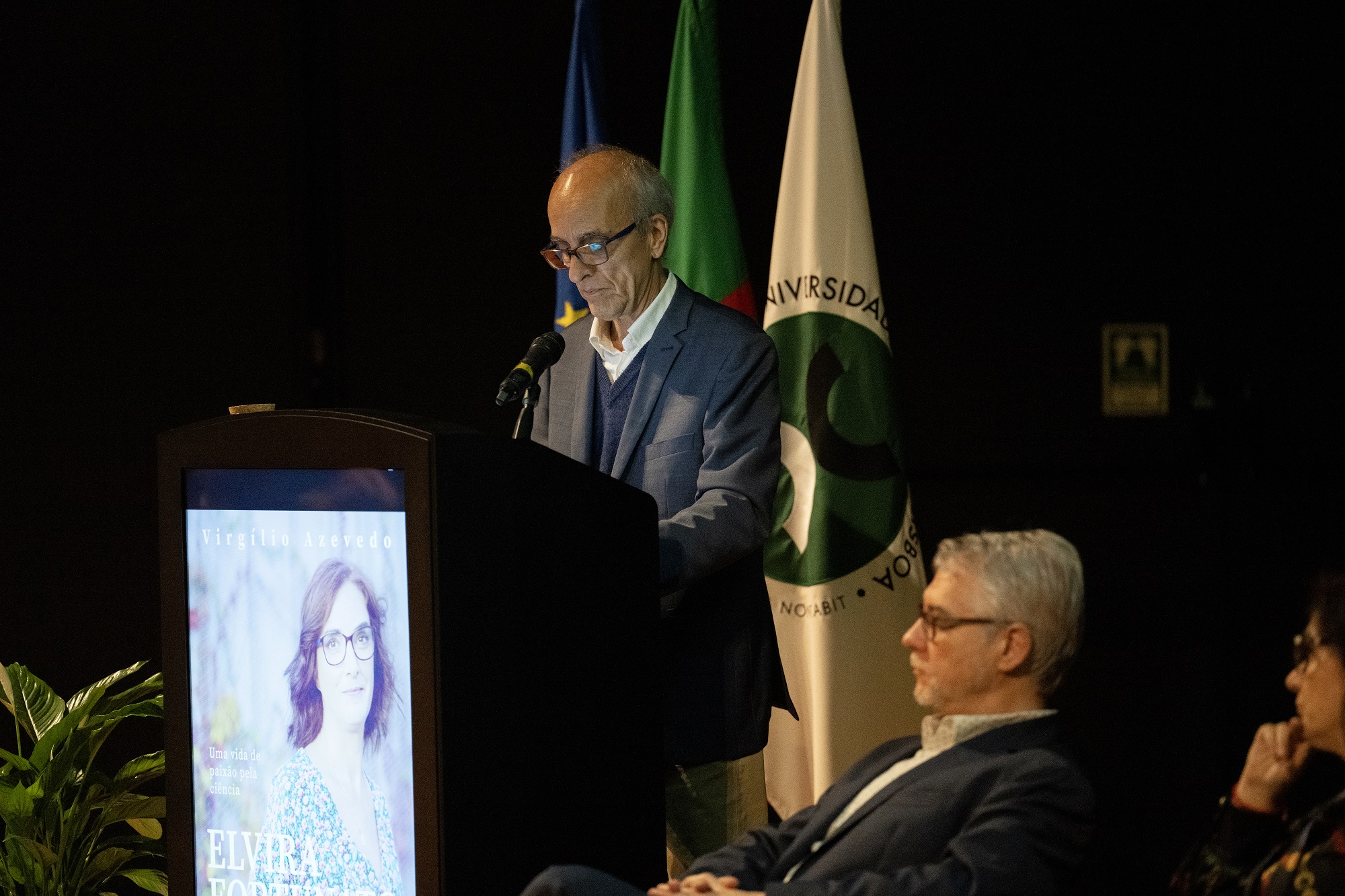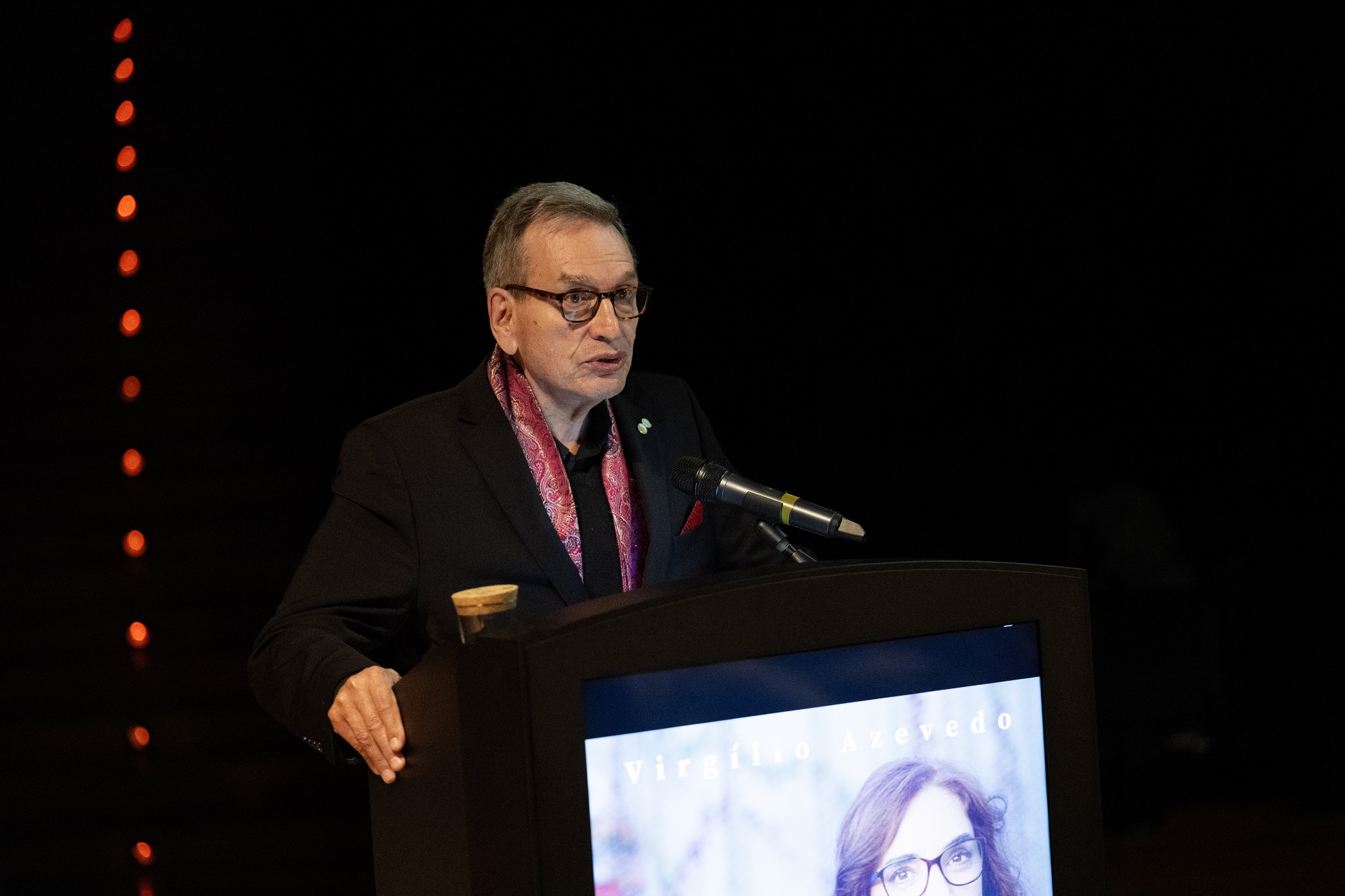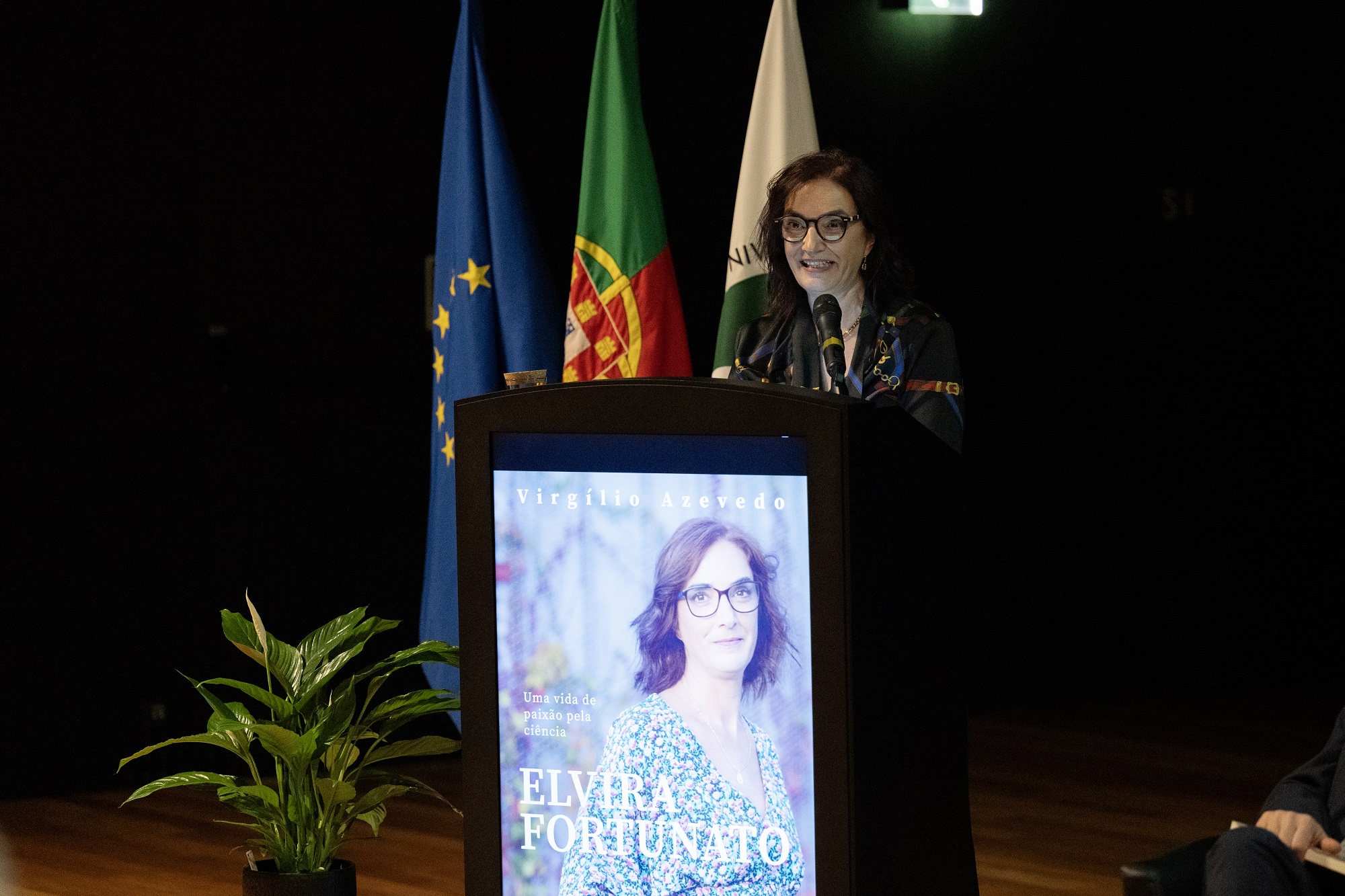“A university that looks to the future of knowledge, without ever forgetting the past, is the ideal place to host this initiative”, stressed the Rector of NOVA University of Lisbon, João Sàágua, at the opening of the event that filled the Rectorate Auditorium late this Tuesday afternoon, 18th. “All the more so when it tells the story of someone who always wanted to do more and better”.
Signed by Virgílio Azevedo, Elvira – A Life of Passion for Science aims to be an inspiration for new generations. Jorge Garcia, head of Bertrand, the book’s publisher, highlighted this inspiring role – “for the defence of equality, as an example for students and even for the inescapable nature of science in the times we live in”. Rosalia Vargas, President of the Ciência Viva Centres network and responsible for the Lisbon Knowledge Pavilion, who signed the preface to the work, also emphasised: “She is someone who was born to know science and to transmit it to others”, and also praised the fact that she “still has so much to give to humanity”.
The author of the work, a journalist who has interviewed Elvira Fortunato countless times for Expresso, highlighted his biggest surprise after gathering all the information necessary to write the book: “Elvira Fortunato’s national and international success is also due to a profoundly democratic vision of teaching, researching, inventing, discovering and leading…”.
Rodrigo Martins, coordinator of CENIMAT and President of the European Academy of Sciences, highlighted, among other things, one of the measures promoted by Elvira Fortunato as Minister of Science, Technology and Higher Education, which allowed a democratisation of higher education by giving access to the courses they wanted to the 2% of students in level A of the School Social Action. “We all know that the social lift works, but it often needs a little push”.
Finally, Elvira Fortunato, who has been a member of NOVA since 1982 and has won two ERC grants – European Research Council grants – and who has achieved worldwide fame for her inventions of paper transistors and transparent electronics, began by confessing that the book had also brought her some revelations, especially one made by the current Rector. “But I won’t tell you, you have to read the book!” he joked. Finally, he couldn’t resist pointing out a surprise reserved for readers: if they press the sticker on the book’s cover, the heat will cause the colour to disappear and reveal the phrase they know so well – “Never say it’s impossible”.







